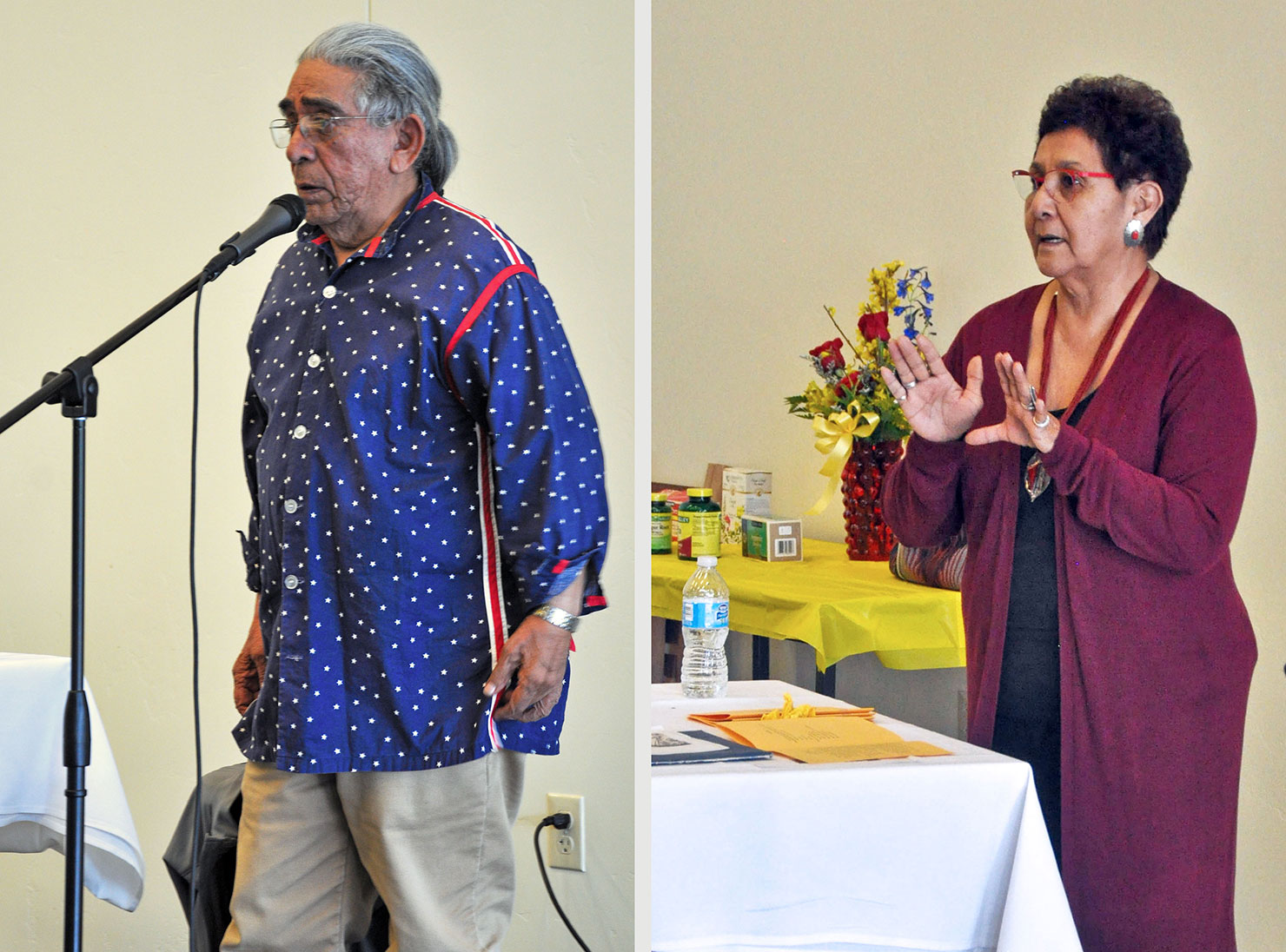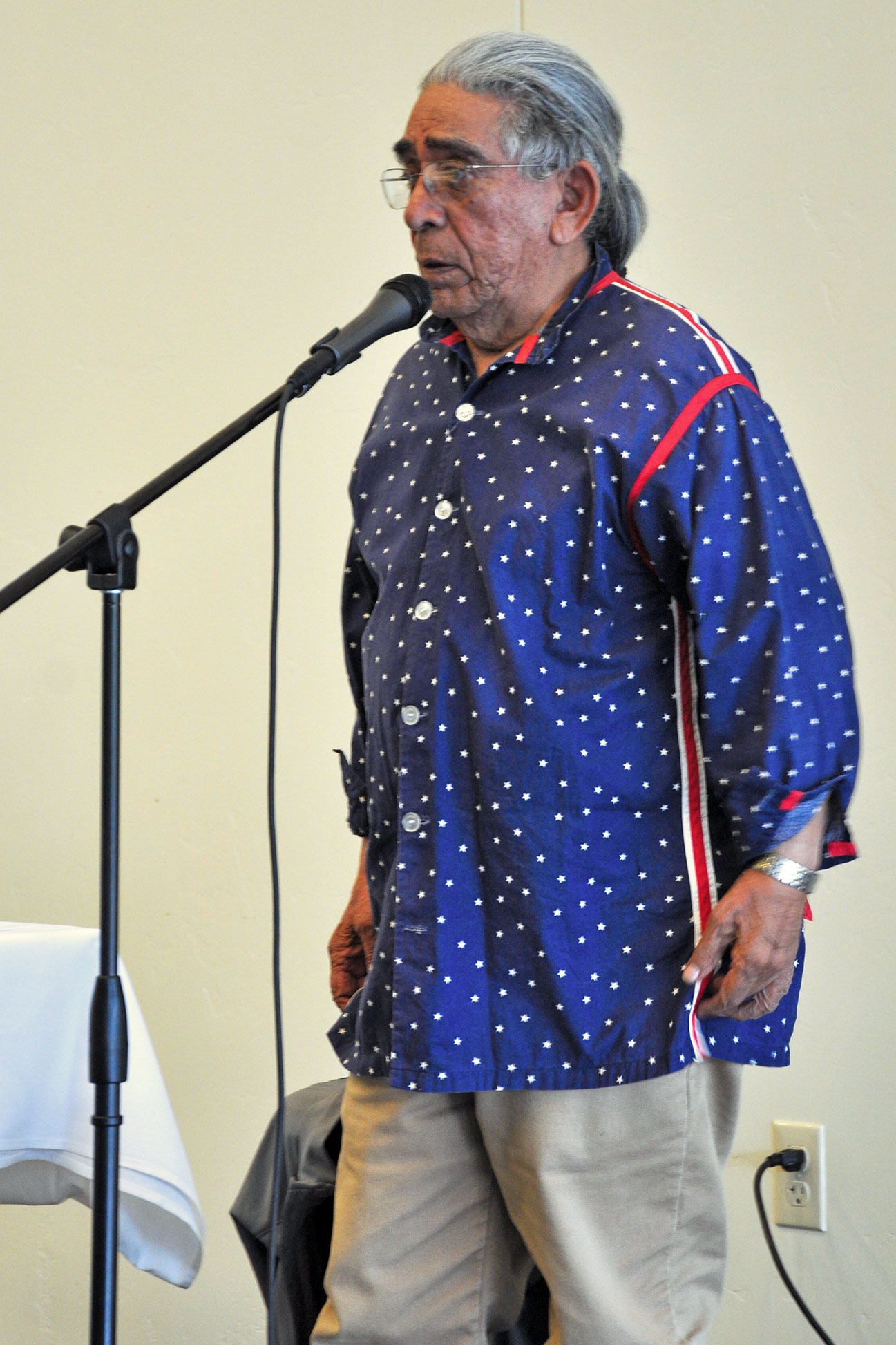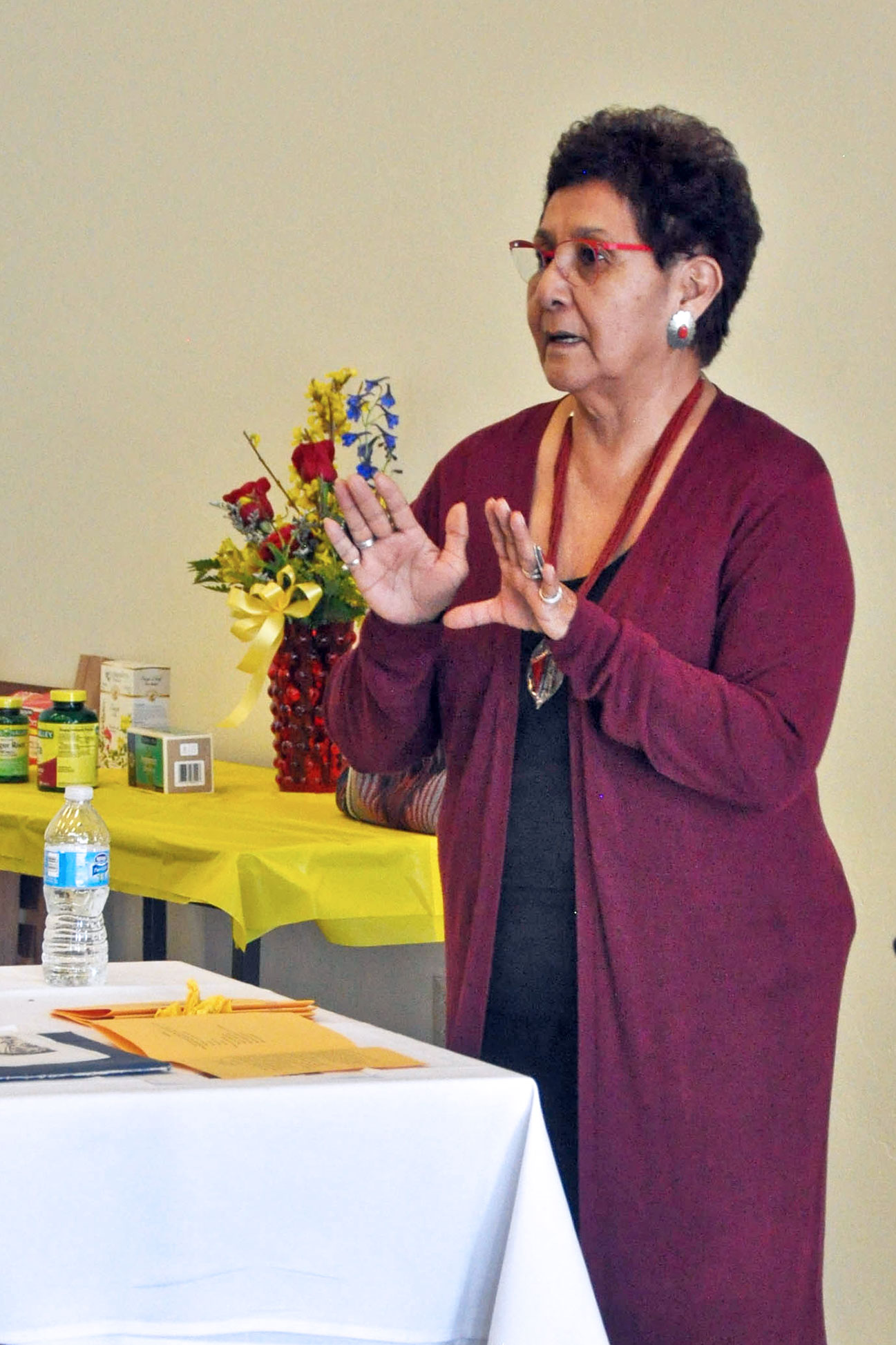MALE RIGHTS OF PASSAGE
Russell Box Sr., Southern Ute tribal elder, spoke of his upbringing and his ventures as a young boy, eventually into adulthood and now an elder at the Male’s Rites of Passage class hosted by the Culture Department, Friday, April 22.
He began by speaking of the four things that make each of us who we are, our spirit, mental, physical and emotional being.
In the old days he said his grandmother would say, “we are connected to everything, the mountains, the rivers, the skies.”
“As we progress, things have changed. Some of us don’t walk the Ute path, or participate in ceremonies,” Box said.
Box went on by adding, “When we were children, our grandparents taught us the way to do things.”
Box spoke of puberty as a young boy becoming a young man. Suffering through growing pains. It’s the responsibility of the parent to teach the children these things, he said.
“Entering puberty, noticing the little things, as hair grows, we begin to see the struggles of becoming a young man,” Box said. “Pray to understand yourself.”
He spoke of what his grandfather would tell him, “get up at first light, as the sun rises in the east, go to the creek and wash your face, look around, see the deer, hear the animals – the turkeys.”
Box said we are no longer connected to these things we don’t honor Mother Earth.
“We no longer look at the trees, we don’t look at the mountains or the rivers,” he said.
Our bodies cry for the spirit, “He put those things in all of us, God put that spirit inside of you,” Box said.
Honor the woman, honor the bear, and honor the Creator.
“The Bear Dance is a woman’s dance, to honor the women. They bring life to Mother Earth. Today we don’t honor the women, we abuse them,” Box said.
Box also spoke of his first Sun Dance, the necessary things he needed to enter the ‘medicine lodge’, of the things he received from friends, family, and the teachings by his uncle. He learned to appreciate what he was taught. He prepared himself, spiritually to enter the corral.
Parents are always telling their sons as teenagers, “you have to go in” [into Sun Dance], the boy must decide for himself, he said.
“It’s the responsibility of the parents to teach the ways to their children, to learn about spirituality,” Box said.
FEMALE RITES OF PASSAGE
Following the Male’s Rites of Passage, tribal members gathered to learn about the Female Rites of Passage on Saturday, April 23 at the Southern Ute Cultural Center and Museum.
For past three years, Southern Ute tribal elder Lynda Grove-D’Wolf has been teaching the Rites of Passage of the Ute people to tribal members from all three Ute tribes. Many young females who attend these presentations receive information on puberty, pregnancy, 30 days after giving birth, and naming of the child.
“Why as mothers, do we tend to forget the pain we endure doing labor?” Grove-D’Wolf asked. “It’s because we have to, if you were to remember in detail how the pain was, you wouldn’t have another.”
When you had a child in the old days, there were things you couldn’t do, as it would be a result to how your child would become. Sage and red raspberries were used especially during pregnancy – Sage for nausea and pain and red raspberries for dilating to get ready for birthing – Grove-D’Wolf said.
As she told of her pregnancies and how strict Ute people were years ago, many tribal members shared stories of their own.
“Thirty days is the beginning to protecting your baby as they’re the purest thing to representing the creator,” Linda Baker said.
Not only do the Rites of Passage reflect on the mothers, but the fathers and grandparents as well.
It’s up to the grandparents to help the baby find its way in the Ute Culture, she said. If you had a boy, the grandfather would pray for the baby, bathe, and talk to him to tell him how he wants him to be as he grows up. If you had a girl it would be the grandmother’s job to bathe, talk with her, pray for her and show her how she wants her to be, Grove-D’Wolf said.
“Many younger tribal members don’t know or do the Rites of Passage anymore. It’s up to you, it’s who you are as an Indian woman or man to learn this before it disappears forever,” she said.
The Rites of Passages were part one of a three part series the Culture Department is hosting. Part two will be announced in the Drum once the information is available.






